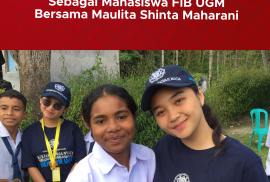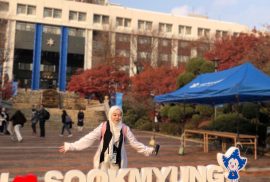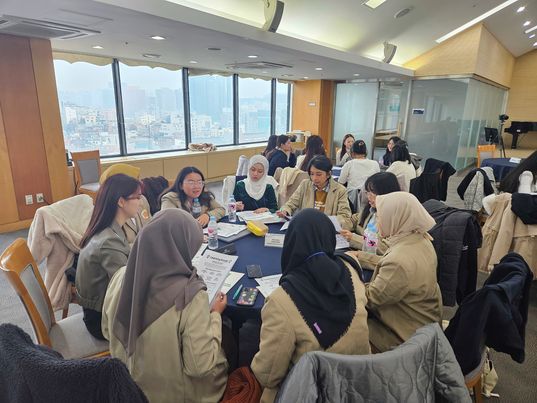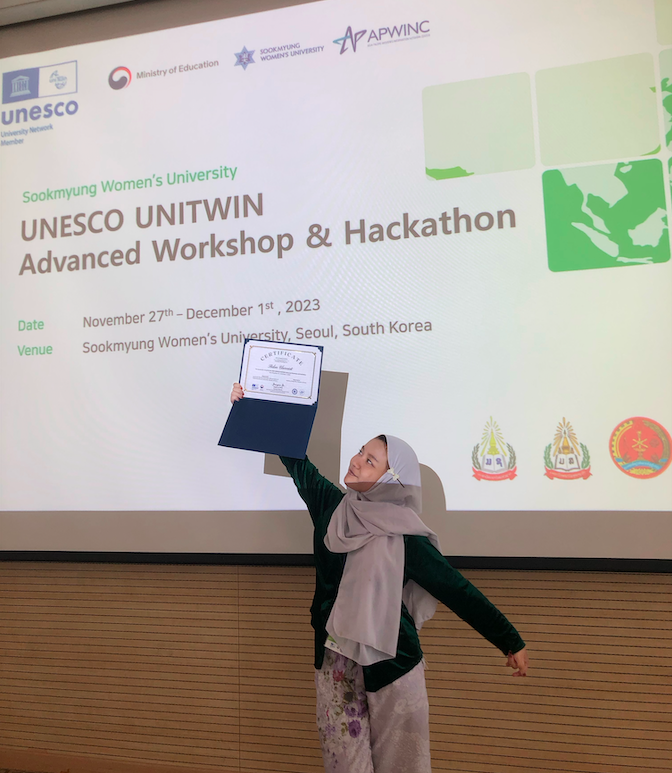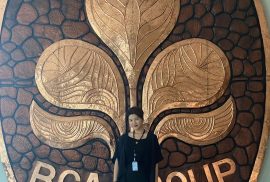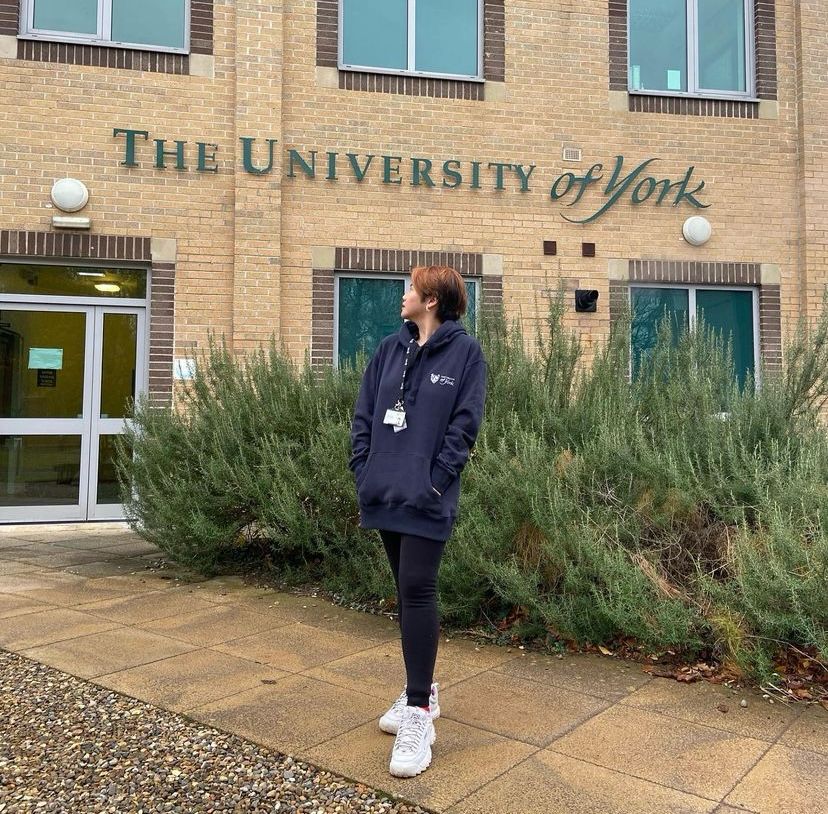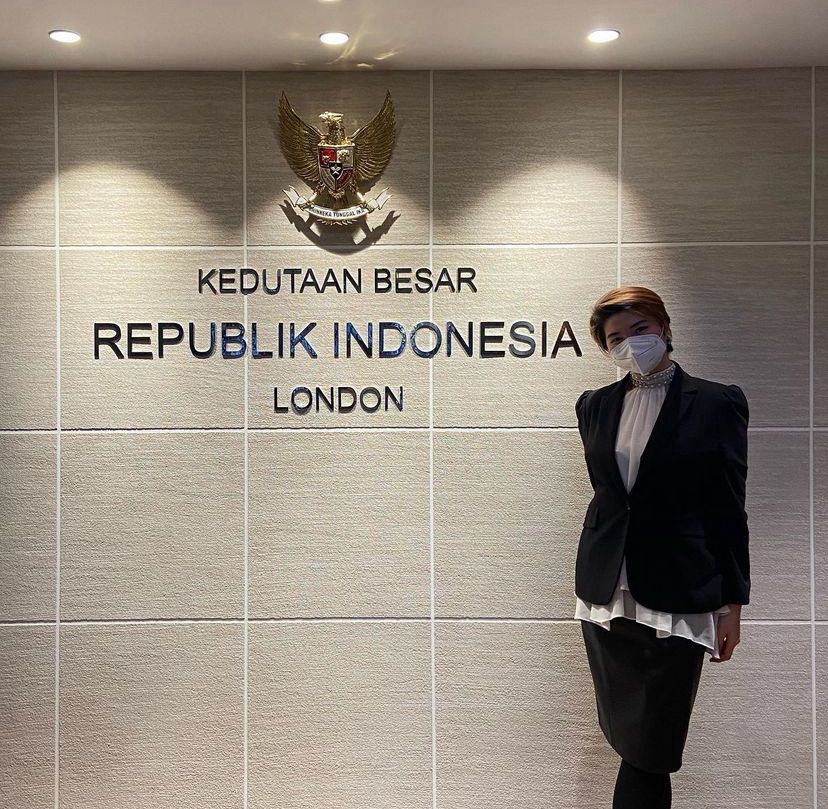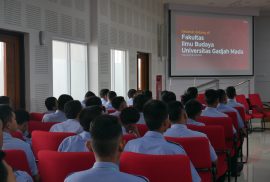SDGs 4: Quality Education | SDGs 5: Gender Equality | SDGs 11: Sustainable Cities and Communities | SDGs 17: Partnerships for the Goals
Being a college student is certainly one of the most valuable moments in an individual’s life. Their moment is utilized and strived to create significant impacts on the community environment. This act of virtue is realized by Maulita Shinta Maharani, a final year student of the English Department, Faculty of Cultural Sciences, Universitas Gadjah Mada, who has taken part in social contributions during her college years. Uli, her nickname, actively participates in several student and external activities, especially those around community relations and social service. She is experienced in cultural immersion and interaction with international students which adds to her insight and knowledge of inclusivity and diversity of cross-cultural backgrounds.
Uli’s journey to be an active student begins with her motivation when she entered college in her first year. Before that, she had not found a suitable student organization or activity for her, but that changed when she entered one of the most prestigious universities in Indonesia, Universitas Gadjah Mada. Uli had the opportunity to join many student organizations and activities that supported her development and growth in the environment she was interested in. Her organizational experiences include an internship at the UGM Office of International Affairs, Head of HRD at UGM Buddy Club, Research Assistant at the English Literature UGM, Academic and Development Staff at Women Beyond Indonesia, Founder of Amnesty Amawa Wikreti under Amnesty International Indonesia, Learning and Development Staff at HopeHelps Network, and currently active as Public Relations Staff at Faculty of Cultural Sciences ,UGM. Uli’s organizational activities led her to take one step further by applying for the Erasmus student exchange program and having the opportunity to become an Erasmus Awardee at Budapest Business University, Hungary.
Not only active in organizations and student activities, Uli has participated in student activities in the scope of culture, namely the Cultural Exchange to the National University of Singapore (NUS) held in October 2023 which aimed to explore multiculturalism in Singapore. At the same time, she also became a research assistant for NUS students who were conducting a research on local communities in Yogyakarta. The result of this activity was a book entitled “Harmony in Diversity: A Journey from Jogja to Singapore, and Back” which tells about the multiculturalism aspects in Singapore and Yogyakarta in particular.
In addition, her passion for writing has made her actively contribute to pouring his thoughts into articles published in several platforms. Some of the articles she has written are as follows:
- “Should Gender be Equal?”: Gender Inequality in Family Form
- “Who is more likely to benefit from child marriage? Children or parents?”: Child Marriage in Temanggung, Central Java
- Nyadran and the Interpretation of Ubarampe: An Annual Tradition to Welcome Ramadan in Temanggung, Central Java, Indonesia
- Fairy Tales vs Feminism
- Women Beyond Bias: Learning from A Figure, An Eye-opening Discussion with Prof. Wening Udasmoro on Multiple Subordination in the Workplace
Her focus on gender studies, diversity, and inclusivity, also made her take the initiative to serve socially by establishing an organization called Amnesty Amawa Wikreti, a human rights organization led by women affiliated with Amnesty International Indonesia. In 2023, she also participated in the Student Community Service-Community Empowerment Learning (KKN-PPM UGM), as part of the final activity for UGM students. Through this program, she participated in community service in Ofu Village, Timor Tengah Selatan, East Nusa Tenggara, Indonesia, which made her become more interested in social service in remote areas and contributing to the service of educational development during the continuation of the program she was involved in.
“I really want to experience life, I want to spend my youth doing a lot of positive activities and building as many relationships as possible,” said Uli, reflecting on the positive experiences and activities she has gone through during her almost four years as a student.
Uli emphasizes the role of a supportive environment as the main source of her successful achievements and experiences to grow and develop. “My parents also gave me the freedom to participate in anything and choose my own path in life. Support from lecturers and the closest ones; Nanda Yulfi Chairunnisa and Steven Glenn Ravanelli Waromi also serves as an important point to grow.”

